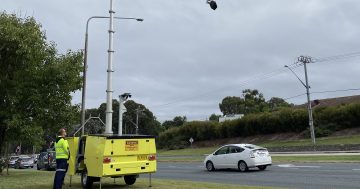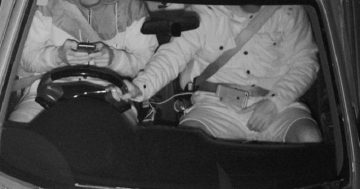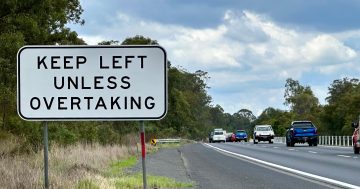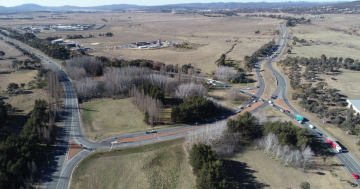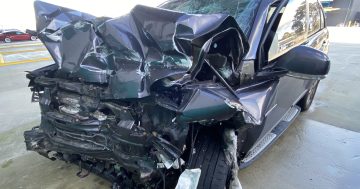
Diets and Distraction: Survey reveals what distracts motorists, including opening food while driving.
Misbehaving children, unrestrained pets, opening food, and taking your eyes off the road to search for street signs are some of the biggest distractions on the road for ACT and NSW motorists, according to recently-released research from Suncorp.
A national survey carried out on behalf of the finance and insurance corporation revealed that almost half of ACT and NSW motorists have had a near miss because they were distracted while driving, with 15 per cent of respondents actually causing an accident due to distractions.
More than 5,000 ACT and NSW motorists were surveyed by Lonergan Research last year, with 59 per cent of parents saying they have had to discipline misbehaving kids while driving and a quarter of respondents having had misbehaving pets in the car.
Hunger pangs have proven to be another major distraction with 57 per cent of people opening food while driving, while 51 per cent of people have dropped something and tried to pick it up while driving.
More than half of the ACT and NSW motorists surveyed also said they have taken their eyes off the road for longer than is comfortable to look for street names or house numbers.
Grooming is another key distraction with 17 per cent of people saying they have done their hair or makeup at the traffic lights.
Other key findings in terms of driving distractions included a quarter of people saying they have sent a text while driving, 37 per cent of people having sent a text while stopped at a traffic light and 38 per cent of people having set a GPS navigation system while stopped at traffic lights.

A quarter of people surveyed said they have sent a text while driving.
Perhaps not surprisingly, verbal phone conversations are another big distraction with 32 per cent of people saying they’d had these conversations handset in hand, 38 per cent with the handset on their lap, and 46 per cent using a hands-free kit in their car.
Suncorp spokesperson Ashleigh Paterson said the proportion of near misses caused by distracted driving is concerning.
“Drivers should be mindful of the added risks that come from being on the road for extended periods of time, driving in unfamiliar areas, or having your car full of noisy family members – including furry ones,” Ms Paterson said.
She encouraged residents to take a break every two hours, get a good night’s sleep ahead of a long journey and to share driving duties where possible.
“It’s also a good idea to minimise distractions by keeping your phone out of reach and nominating another family member to navigate.”
Ms Paterson said that tips for staying safe on the road include:
- make use of driver reviver sites and change drivers at each rest stop;
- don’t drive at times when you would normally be asleep or tired;
- take a break from driving at least every two hours to help fight driver fatigue;
- if you’re a passenger, encourage your driver to take a break; and
- keep your eyes on the road and avoid distraction.
Do you often get distracted while driving? Do you think people understand how serious these distractions can be? Let us know your thoughts in the comments below.












